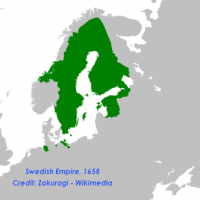Vladimir Zhirinovsky, a lunatic elected white supremacist Russian politician (born in often race-troubled Kazakhstan) has identified the source of all Russia’s global image problems as that goddam Mongol letter (“ы”) being in the alphabet, goshdarnit!
“Only animals make this sound, ‘ы- ы,'” he said, adding that the regular ‘и’ (‘i’) is enough for the Russian alphabet. ‘Ы’ doesn’t exist in any other European language, argued Zhirinovsky. “This primitive, Asiatic sound is the reason people don’t like us in Europe,” he told lawmakers.
Yep, nailed it. THAT is why “people don’t like” Russia “in Europe” these days. Nothing to do with invading Crimea.
The politician seemed to have a longstanding issue with the “guttural” letter, which he claimed his son wasn’t able to pronounce as a child. “He once told me, ‘Dad, dad, look, there’s a ‘мишка’,” the Russian word for ‘bear.’ “I thought ‘What ‘мишка’? A bear? But he meant ‘мышка’,” the word for “mouse.”
Curiously, the same man just last month called for Russia to annex back its Central Asian republics as “subject” states. Because nothing gets rid of “nasty Asiatic” influences in your culture like re-occupying your imperial-era Asiatic conquests.
Then again, as he is also famous for advocating that people only kiss one another on the forehead, I guess he’s not one for embracing bulletproof logic. Not that racists typically are, really, I suppose.
Such irredentist rhetoric — advocating for seizing territories formerly held by one’s country, to reunite with ethnic populations abroad — is swirling around Russia’s political class in full fury right now to justify the Crimea invasion. He’s far from alone on that point. Small wonder then that many non-Russian folks in Central Asian countries with large Russian populations, such as Kyrgyzstan, are starting to worry that they are next.
And Kyrgyz and Kazakh speakers are definitely not nostalgic for the idea of returning to direct rule by those who see their languages as inferior and “primitive,” as Zhirinovsky labeled them.
Beside the Russian and Belarussian Cyrillic alphabets, the letter ‘ы’ also exists in most of the Turkic languages spoken in former Soviet republics, including Kazakh and Kyrgyz, which use the same alphabet.
The vowel is widely used in Kazakh and Kyrgyz, sometimes several times in the same word. “Ырыс алды—ынтымақ,” (“Yrys aldy—yntymaq”) reads a Kazakh proverb, which translates as “There is no abundance without solidarity.” The letter ‘ы’ also makes up most of the vowels of a well-known Kyrgyz saying— “ырысы жоктун ырымы күч” (“yrysy zhoktun yrymy kuch”)—that means “a person with no confidence believes in superstition.”
The history of Russian rule over Central Asia is largely one of Russian white-euro supremacy being inflicted on the local populations to try to stamp out their languages and cultures.




 In a push-back against the tyranny of conservative tax caps that prevent some state and local tax increases except by referendum, activists and some legislators in Colorado are trying to persuade the courts to hear a case that says these restrictions are Federally unconstitutional.
In a push-back against the tyranny of conservative tax caps that prevent some state and local tax increases except by referendum, activists and some legislators in Colorado are trying to persuade the courts to hear a case that says these restrictions are Federally unconstitutional.  Description:
Description:
 The dangerous fantasy that vaccines cause autism has infected communities across the world and contributed to a resurgence of formerly rare diseases. Data
The dangerous fantasy that vaccines cause autism has infected communities across the world and contributed to a resurgence of formerly rare diseases. Data